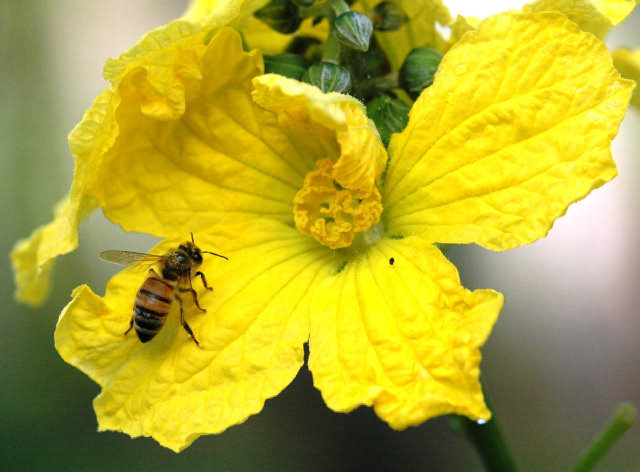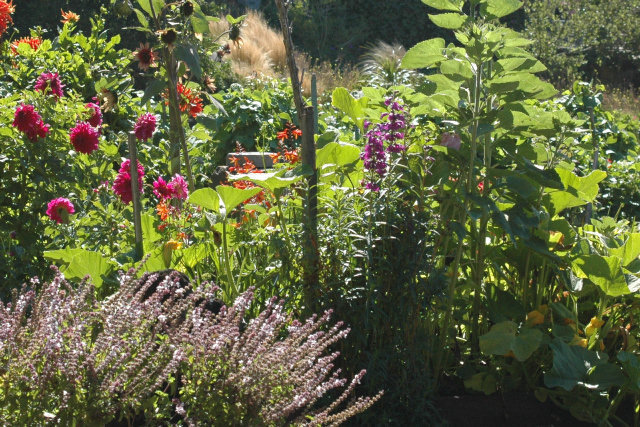Attracting beneficial insects to your garden

As published in the Miami Herald
You might ask, “Why would I ever want to attract bugs to my garden?”
Many bugs are beneficial to have around your plants, and their presence can actually be a sign of a healthy, thriving plot of land. Although some have a reputation as pests, insects are also pollinators, predators and decomposers — all very important roles in a balanced ecosystem.
 |
| Aside from their reputation as pests, insects are also pollinators, predators and decomposers. |
There is a beautiful phrase that says “Farm like the forest.” What this suggests is that nature is capable of maintaining a perfect balance, and we have a lot to learn from observing how things exist in the natural world. A forest ecosystem has a web of diverse and interdependent species, each filling a unique niche in that ecosystem. We can learn a lesson from that model and apply it to our own backyards.
Promoting species diversity is one way to increase your chances for a successful garden, and there are some simple steps you can take to get started.
Start with a diverse selection of plants. Whether you are planting a vegetable garden or a butterfly garden, I recommend mixing several species in your planting area. For example, plant herbs and flowers next to your vegetables. Flowers such as marigolds will help repel certain insect and nematode pests while other flowers such as dill will attract a wealth of pollinators to your garden. A patchwork of diverse plants prevents specific pests or diseases from spreading unchecked through rows or blocks of homogenous single species plantings.
 |
| A diversity of plants will attract a diversity of insects. |
A diversity of plants will in turn attract a diversity of insects. The next step is to sit back and watch nature figure things out on its own. If you observe closely, a population of aphids on a tomato plant will quickly attract a healthy population of ladybugs, which will bring your aphid populations back down to harmless levels in no time.
The key is not to react to every insect in your garden as an immediate threat that needs to be eliminated. Instead, learn to be a careful observer in your garden, taking note of when pests arrive, if and when their natural enemies follow, and at what point the pests might cause a significant threat that must be addressed.
Minimizing or even eliminating your use of pesticides is one of the most important things you can do to promote diversity in your garden. Pesticides will not only kill the pest insect, but will likely kill all of the beneficial insects in the garden. The first round of pesticides alone can create an imbalance in your garden that can lead to a new pest outbreak.
Additionally, many insects are developing pesticide resistance due to the overuse of pesticides, similar to antibiotic resistance in humans. If you must spray pesticides, use a non-toxic option like horticultural oil or soap, which will not persist in the environment nor harm beneficial insects.
Recognize and celebrate nature’s diversity, and remember to “farm like the forest” to enjoy the many bounties your garden has to offer.
